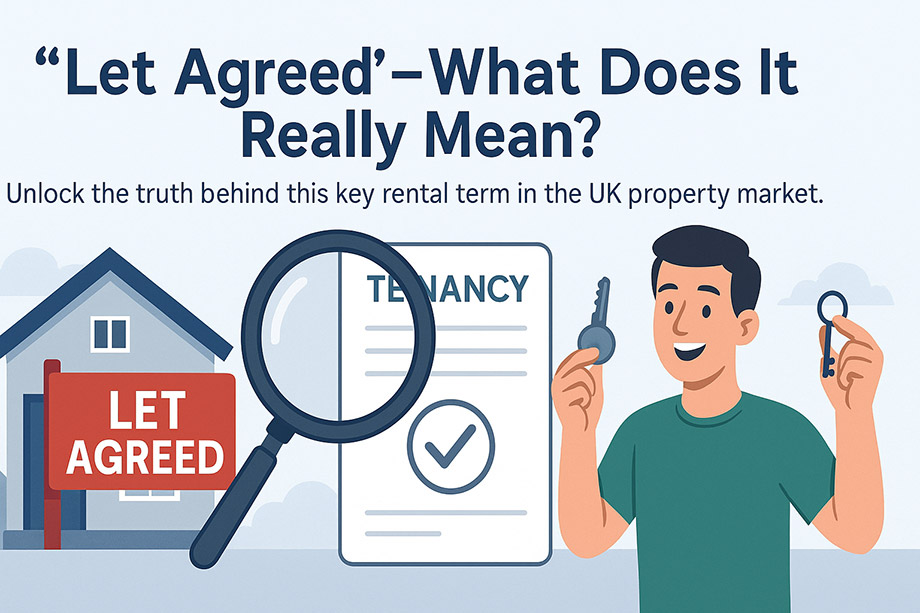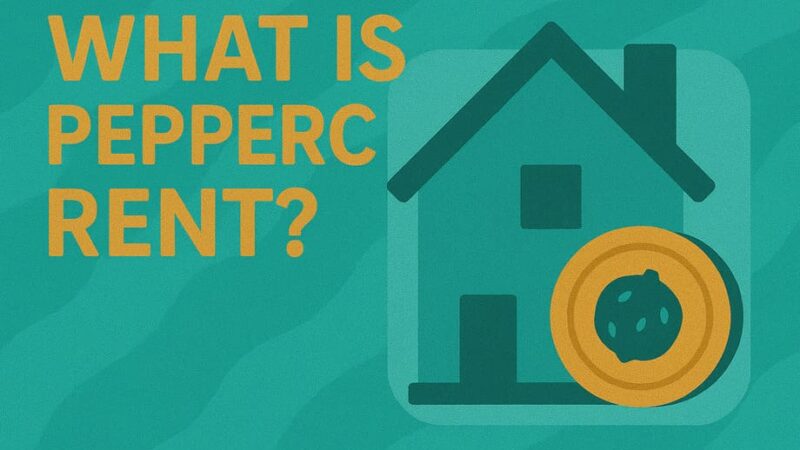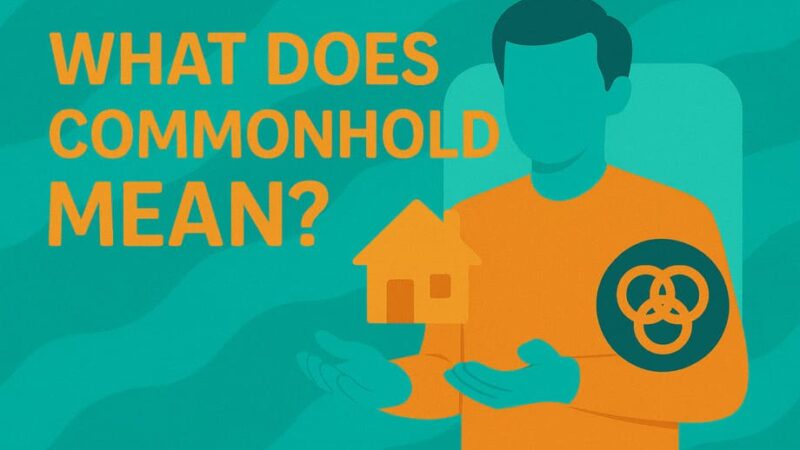What Does Let Agreed Mean? – Let Agreed Meaning UK Explained

When browsing property listings in the UK, you may come across the term “Let Agreed”.
This means that a landlord has accepted an offer from a tenant, and both parties have agreed in principle to proceed with the rental – but the tenancy hasn’t officially started yet.
In other words, the property is temporarily off the market while the referencing, paperwork, and final checks are completed.
In short:
“Let Agreed” = A tenant has been found and agreed upon, but the contract isn’t fully signed yet.
What Happens After “Let Agreed”?
Once a property is marked as “Let Agreed”, the rental process usually moves into its final verification stage.
Here’s what typically happens next:
- Tenant Referencing:
The letting agent or landlord checks the tenant’s employment, credit history, and previous landlord references. - Right to Rent Checks:
In the UK, landlords must verify the tenant’s legal right to rent property. - Drafting and Signing the Tenancy Agreement:
Once references are approved, a written tenancy agreement (usually an Assured Shorthold Tenancy) is prepared and signed by both parties. - Deposit and First Rent Payment:
The tenant pays a security deposit (protected in a government-approved scheme) and the first month’s rent. - Move-in Date Confirmed:
After all payments and paperwork are complete, the tenant can collect keys and move in.
Is “Let Agreed” the Same as “Let”?
Not quite.
These two terms are often confused but mean different stages of the rental process:
| Term | Meaning |
|---|---|
| Let Agreed | An offer has been accepted but the tenancy is not yet finalised. |
| Let | All paperwork is complete, deposit and rent paid, and the tenant has moved in. |
So while “Let Agreed” means the property is reserved, “Let” means it’s officially rented.
Can a “Let Agreed” Property Still Fall Through?
Yes, it can.
Although both sides have agreed in principle, the deal isn’t legally binding until the tenancy agreement is signed.
Common reasons a let agreed property might fall through include:
- Tenant fails referencing or credit checks
- Tenant changes their mind
- Delays with deposit or paperwork
- Landlord receives a stronger offer
Until contracts are signed, either party can still withdraw without legal penalties.
What Does “Let Agreed” Mean for Tenants?
For tenants, “Let Agreed” means you’ve secured the property, provided everything checks out.
It’s a positive sign — but not a guarantee yet.
Tips for tenants:
- Respond quickly to referencing requests
- Provide accurate employment and financial details
- Pay holding deposits on time
- Stay in contact with the agent to avoid delays
If all goes smoothly, you’ll soon move from “Let Agreed” to “Let”.
What Does “Let Agreed” Mean for Landlords?
For landlords, marking a listing as “Let Agreed” means you’ve found a suitable tenant and are completing the pre-tenancy steps.
Key actions for landlords:
- Verify tenant references carefully
- Prepare a clear and fair tenancy agreement
- Protect the tenant’s deposit in an approved scheme
- Arrange safety checks (EPC, gas, and electrical certificates)
Once everything is approved, the property status changes to “Let”, and rent payments can begin.
How Long Does “Let Agreed” Last?
The “Let Agreed” period usually lasts 1–3 weeks, depending on referencing, paperwork, and availability of both parties.
However, it can take longer if:
- References are delayed
- There’s an issue with the tenant’s documents
- The move-in date is scheduled far ahead
If you’re a tenant waiting during this stage, stay in touch with the letting agent for progress updates.
Does “Let Agreed” Mean the Listing Is Removed?
Most estate agents and property portals (like Rightmove or Zoopla) keep the listing visible but marked as “Let Agreed.”
This shows other searchers that the property is no longer actively available, though it’s not officially off the market until contracts are signed.
If the deal collapses, the listing can quickly be re-activated as available again.
Can You Still Enquire About a “Let Agreed” Property?
Yes, and sometimes, it’s a smart move.
Agents may still accept backup enquiries in case the current deal falls through.
If you really like a “Let Agreed” property:
- Contact the letting agent
- Ask to be added to a waiting list
- Be ready with references and documents
That way, if the first applicant drops out, you could be next in line.
Benefits of Understanding the “Let Agreed” Stage
Knowing what “Let Agreed” means helps both landlords and tenants:
For Tenants:
- Avoid confusion and unrealistic expectations
- Plan move-in timing better
- Prevent disappointment if a deal doesn’t go through
For Landlords:
- Manage communication with applicants
- Reduce the risk of vacant periods
- Stay compliant with rental regulations
Common FAQs About “Let Agreed”
Can a ‘Let Agreed’ property still be advertised?
Yes. Most agents keep the listing visible online but marked as ‘Let Agreed’ to show it’s reserved while paperwork is completed.
How long after ‘Let Agreed’ do tenants move in?
Typically 1 to 3 weeks, depending on referencing, deposit payment, and the confirmed move-in date.
Can tenants back out after ‘Let Agreed’?
Yes, before signing the tenancy agreement. After signing, the holding deposit may be forfeited if the tenant withdraws.
Does ‘Let Agreed’ affect credit checks?
No. The ‘Let Agreed’ label is only a stage in the rental process. Credit checks occur separately before final approval.
What happens if references fail?
If references fail, the agreement can be cancelled and the landlord may remarket the property to other tenants.
Final Thoughts
Understanding what “Let Agreed” means can help you navigate the UK rental market with confidence.
It’s a temporary but important step in the renting process, showing that a tenant and landlord have agreed to proceed, but before the deal is legally final.
For tenants, it’s the green light to prepare for move-in.
For landlords, it’s reassurance that the property won’t stay vacant for long.
Once referencing and agreements are complete, the status changes to “Let”, and the tenancy officially begins.
In Summary:
- “Let Agreed” = Offer accepted, not yet final.
- “Let” = Tenancy contract signed, move-in confirmed.
- Always confirm with the letting agent for updates.
Last Updated on October 6, 2025 by James Cartwright







